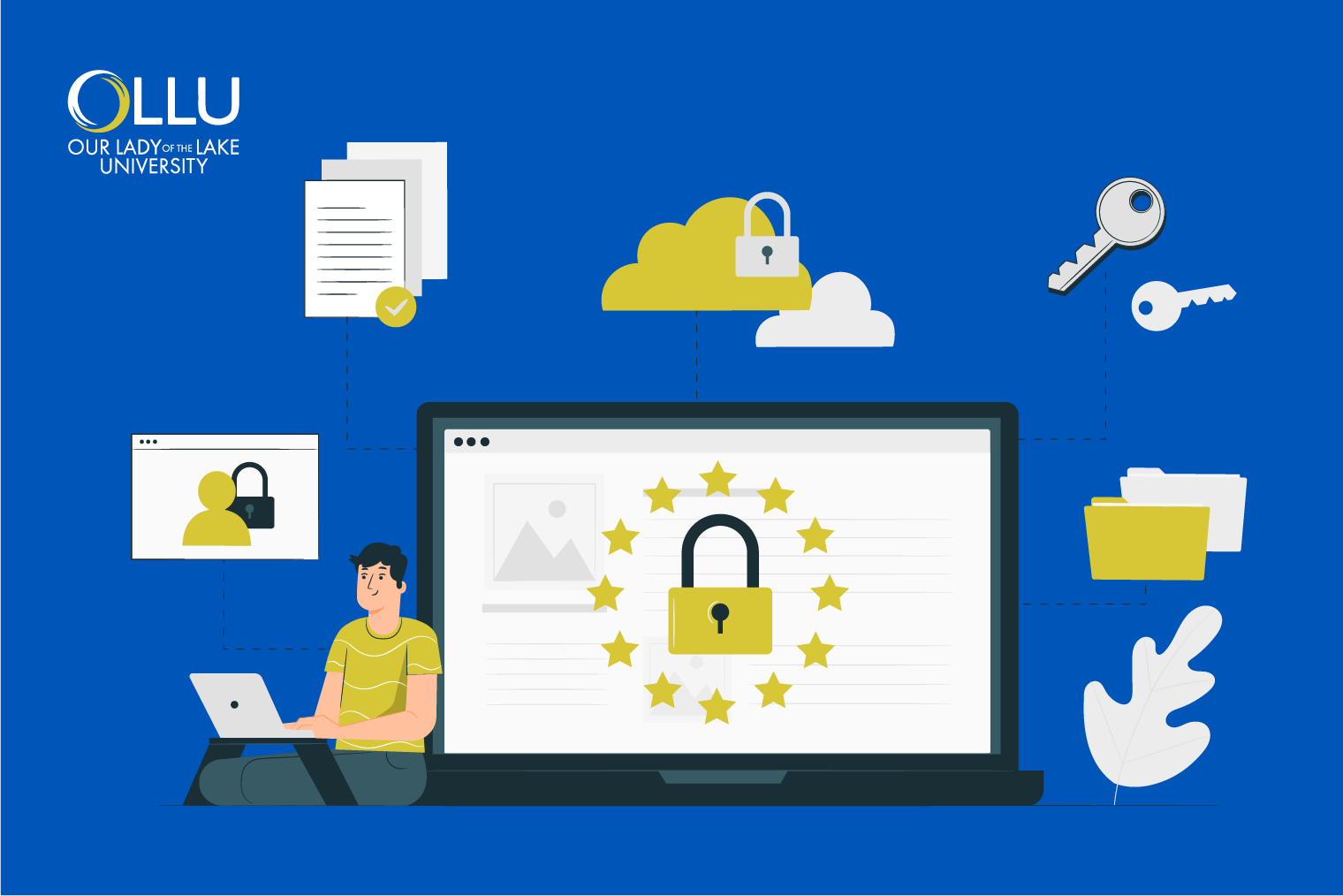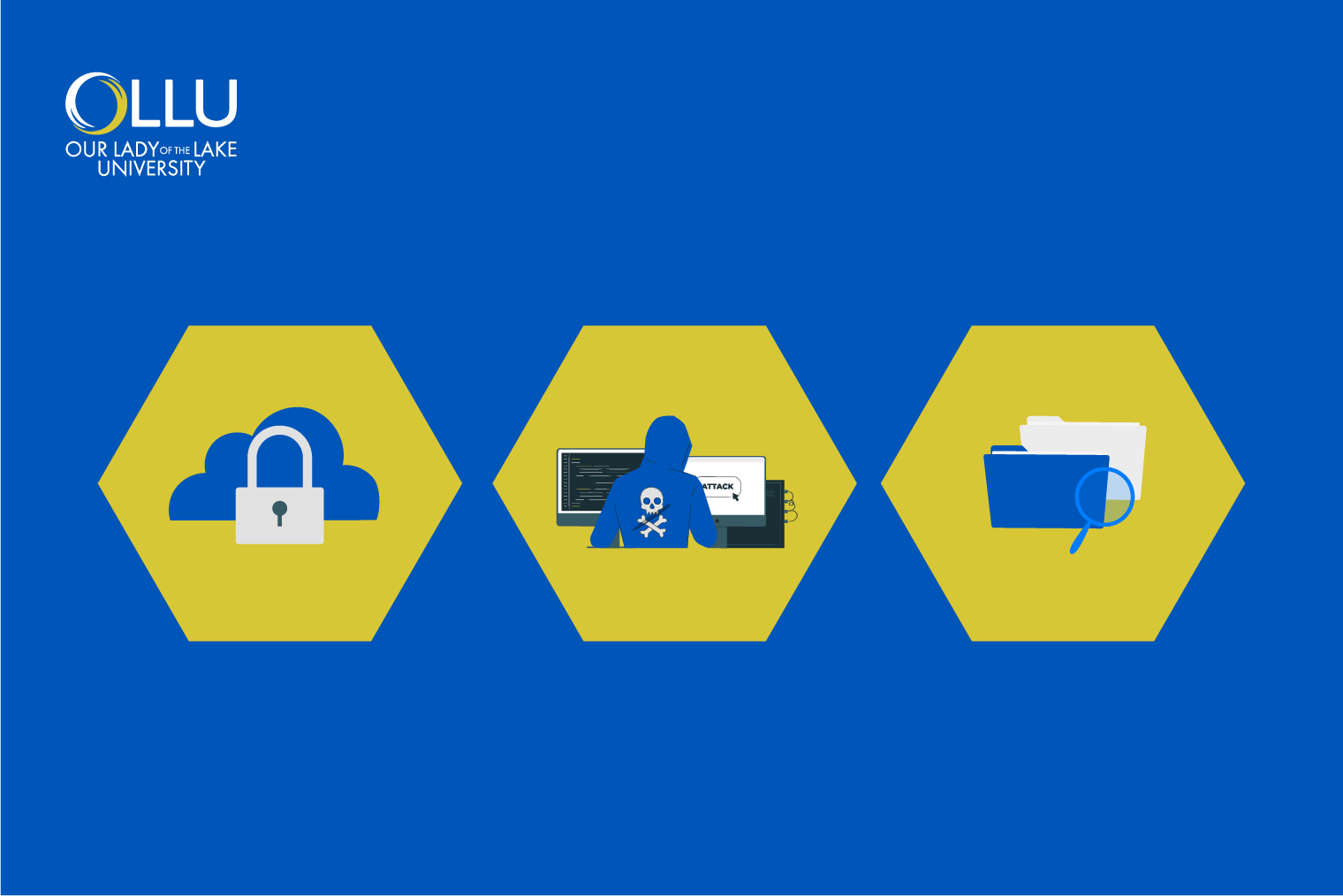Cybersecurity Ethics: Everything You Need To Know
Apr 25, 2024

Ethics, in its broadest sense, encompasses humanity's quest to determine the best ways to live. In contemporary contexts, ethical considerations extend to various domains, including technology, notably cybersecurity.
Cybersecurity professionals, by virtue of their roles, often wield access to sensitive information, prompting reflection on the ethical implications of their actions. Understanding the moral significance and potential impact of data handling and security measures is key to safeguarding individuals' rights and privacy. So read on as we explore cybersecurity ethics, its complexities, and implications, highlighting the dilemmas the professionals entrusted with protecting our digital world face.
Understanding the Basics
Before exploring cybersecurity's ethical complexities, it's important to establish a foundational understanding of what cybersecurity ethics entail and why they are significant.
What are cybersecurity ethics?
Cybersecurity ethics refers to the moral principles and standards governing the conduct of cybersecurity professionals and the practices aimed at safeguarding data, computer systems, and networks from unauthorized access, breaches, and attacks. It encompasses integrity, accountability, privacy, fairness, and societal well-being in cybersecurity decision-making and actions.
Ethical cybersecurity practices uphold the rights and interests of individuals, organizations, and society while adhering to the legal and regulatory frameworks governing data protection and cybersecurity.
Why are cybersecurity ethics important?
The importance of cybersecurity ethics is best understood through its role in preserving the integrity, functionality, and reliability of human institutions and practices reliant on data, systems, and networks.
Cybersecurity professionals, in general, play a crucial role in safeguarding the lives, privacy, and well-being of individuals and communities dependent on secure digital infrastructure. But their ethical cybersecurity practices, in particular, contribute to fostering trust, stability, and innovation in the digital ecosystem, thereby enhancing societal welfare and prosperity. By upholding ethical standards, cybersecurity professionals mitigate risks and vulnerabilities and promote technology's ethical use and governance, ultimately contributing to a safer and more resilient digital environment for all stakeholders.
Ethical Issues in Cybersecurity

Cybersecurity deals with a myriad of ethical issues that warrant close examination. Below, we'll explore some pressing concerns, focusing on the complexities surrounding privacy violations, surveillance and monitoring practices, resource allocation, and transparency and disclosure in cybersecurity ethics.
Privacy violations
With the vast amounts of personal data generated and stored electronically, cyber breaches represent a pervasive threat to individual privacy. Unauthorized access to personal data and breaches of confidentiality are not only common but also have far-reaching consequences.
These breaches expose individuals to risks such as identity theft, where their personal information is used fraudulently to commit crimes or impersonate them online. Additionally, cybercriminals exploit stolen data for financial gain through various forms of fraud, jeopardizing individuals' financial security and stability. Statistics indicate that 93% of data breaches are motivated by financial gain. Moreover, the exploitation of personal data can extend beyond financial harm, encompassing other forms of exploitation and manipulation, such as targeted phishing attacks or blackmail attempts.
Given the profound implications of privacy violations, cybersecurity measures must be implemented to mitigate these risks and safeguard individuals' sensitive information. Such measures may include encryption protocols, access controls, and regular security audits to detect and prevent unauthorized access to personal data, thereby upholding individuals' right to privacy in an increasingly digital world.
Surveillance and monitoring
Surveillance technologies and data collection methods also wield significant power, enhancing security measures and infringing individuals' privacy rights. As these technologies enable the gathering and analysis of vast amounts of personal data, ethical concerns emerge, raising questions about the ethical justification for such surveillance and the potential for misuse or abuse of collected information.
The widespread deployment of surveillance technologies, including CCTV cameras, facial recognition systems, and internet monitoring tools, can lead to a pervasive sense of surveillance and diminish individuals' expectations of privacy in both public and private spaces. Moreover, collecting personal data without consent or oversight raises concerns about the erosion of civil liberties and individual autonomy, as individuals may feel subjected to unwarranted scrutiny and surveillance by authorities or private entities.
Furthermore, the ethical implications of surveillance extend beyond mere data collection to encompass data retention, sharing, and potential misuse. The accumulation of vast troves of personal data raises concerns about data security and the risk of unauthorized access or data breaches, which can result in severe consequences such as identity theft or financial fraud. Additionally, the potential for misuse or abuse of surveillance data, whether by government agencies, corporate entities, or malicious actors, underscores the importance of establishing robust ethical frameworks and legal safeguards to govern personal information collection, storage, and use.
Cybersecurity resource allocation
Resource allocation presents one of the most significant ethical dilemmas in the field of cybersecurity. Organizations must decide how to allocate finite resources—such as time, budgetary allocations, and personnel—to a myriad of cybersecurity needs, from implementing security protocols to addressing vulnerabilities and responding to emerging threats. This necessitates ethical considerations regarding allocating resources to maximize the effectiveness of cybersecurity measures while also considering the broader interests and needs of stakeholders.
Furthermore, resource allocation's ethical challenges extend to usability and economic sustainability considerations. While bolstering cybersecurity measures is essential for safeguarding against cyber threats, overly restrictive security measures can negatively impact usability and productivity and potentially disrupt organizational operations and user experiences. What's more, investing heavily in cybersecurity initiatives may strain organizational budgets and resources, raising questions about the feasibility and sustainability of long-term security strategies.
Transparency and disclosure
Lastly, transparency and disclosure of security vulnerabilities are fundamental for empowering users to take proactive measures to safeguard their data and systems against potential threats. However, determining the appropriate extent and mode of disclosure poses ethical challenges, requiring careful consideration of the specific context and stakeholder interests.
Determining the appropriate extent of disclosure involves weighing the potential impact on affected parties, the severity of the vulnerability, and the likelihood of malicious actors exploiting it. In some cases, premature or incomplete disclosure may inadvertently expose users to greater risks, while delayed disclosure can impede efforts to address vulnerabilities.
Moreover, the mode of disclosure poses ethical dilemmas, as organizations must balance the need for transparency with concerns about causing panic or facilitating exploitation by adversaries. Effective communication strategies prioritizing clarity, accessibility, and user empowerment are essential for promoting transparency while minimizing potential negative consequences. By engaging in transparent and inclusive communication practices, cybersecurity professionals can foster trust and collaboration among stakeholders, enhancing the overall security posture of organizations and communities.
Cybersecurity Ethical Challenges
In the preceding paragraphs, we examined ethically significant issues associated with cybersecurity practices. Now, we'll explore some common ethical challenges encountered by cybersecurity professionals.
Threats and risks
Cybersecurity professionals face challenges in crafting effective incident response plans. They must ensure plans cover various threats, including worst-case scenarios while assessing available resources.
Ethical gray areas emerge in determining the justifiability of aggressive measures and the decision to pay ransoms to attackers. Professionals also weigh the balance between user responsibility and organizational security measures. These complexities highlight the importance of incorporating ethical considerations in incident response planning.
Confidentiality
Maintaining confidentiality presents cybersecurity professionals with another intricate challenge. They must uphold the secrecy of sensitive information while implementing security measures to prevent unauthorized access.
Ethical considerations arise concerning data encryption, access control protocols, and secure communication channels. Professionals must navigate ethical gray areas regarding data sharing within organizations and with third parties, ensuring that confidentiality is preserved without impeding necessary collaboration. Balancing the need for confidentiality with transparency and accountability is a continuous ethical dilemma in cybersecurity practices.
User privacy
Cybersecurity professionals must also navigate the delicate balance between monitoring network activity for security purposes and respecting user privacy rights. Determining the extent of monitoring and data collection without infringing upon individual privacy is complex.
Professionals face ethical dilemmas regarding transparency in monitoring practices and user awareness. Striking the right balance between security and privacy requires careful consideration of ethical principles and user rights.
The Bottom Line
Ultimately, while not as philosophically daunting as the trolley problem, the ethical dilemmas cybersecurity professionals deal with demand a delicate balance between professional duties and moral obligations.
If you're ready to confront these challenges and nurture ethical growth, we invite you to enroll in our Master of Science in Cybersecurity Management program at OLLU. Remember, ethical integrity is the strongest encryption when it comes to digital defense.
Frequently Asked Questions (FAQs)
What are the ethical considerations in cybersecurity?
Ethical considerations in cybersecurity involve ensuring privacy, fairness, transparency, and accountability in handling data, implementing security measures, and responding to threats.
Why study cybersecurity ethics?
Studying cybersecurity ethics is crucial to understanding the ethical implications of technological advancements, protecting individuals' rights and privacy, and promoting responsible technology use in our digital world.
Do ethics matter in cybersecurity?
Of course! Ethics guide professionals in making decisions that impact individuals' privacy, security, and well-being, fostering trust in digital systems and protecting against potential harm.
Why is cyber ethics unique?
Cyber ethics is unique because it addresses the intersection of technology, ethics, and human behavior, requiring professionals to navigate complex ethical dilemmas in an evolving digital landscape where the consequences of actions can have far-reaching effects on society.